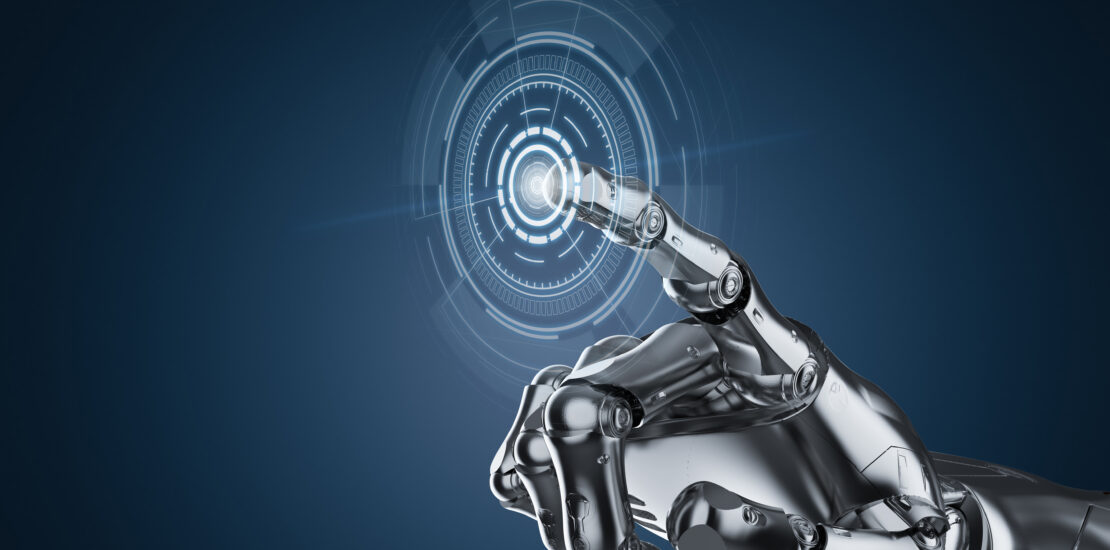- May 6, 2024
- Posted by: admin
- Category: Uncategorized

By CHRP Grace Mwaniki
Artificial Intelligence (AI) is ushering in a new era for Human Resources (HR), revolutionizing traditional practices and reshaping the way organizations are managing their workforce. The integration of AI into every aspect of our professional lives is not just inevitable, it is happening!
Artificial Intelligence is the capability of machines to perform cognitive tasks that usually require human intelligence. Such cognitive tasks include learning, decision-making, visual perception, and speech recognition among others. Simply put, Artificial Intelligence is intelligence demonstrated by machines.
To AI or not to AI is no longer a question of “if” but “when”. Artificial Intelligence is helping human resource automate and streamline some parts of the workflow. Below are six of the many ways in which Artificial Intelligence is redefining the HR practice.
While AI offers significant benefits in terms of efficiency, productivity and innovation, it also raises ethical, social and economic concerns. These include issues related to job displacement due to automation, biases in AI algorithms, privacy and security risks and the potential for misuse or unintended consequences.
The workforce faces a transformative shift, where AI skills will become as fundamental as literacy and numeracy once were. Organizations must leverage AI to enhance employees’ capabilities and not replace them.
The adoption of AI in HR has opened up new avenues for efficiency, accuracy and strategic decision-making. From recruitment to talent management and beyond, AI is redefining HR in several key ways as follows:
- Streamlining Recruitment and Talent Acquisition: AI-powered tools streamline the recruitment process by analysing resumes, identifying suitable candidates, conducting initial interviews through chatbots and even selecting suitable candidates. These systems can assess candidates based on skills, experience and cultural fit, reducing bias and speeding up the hiring process.
- Reducing Bias: Automation and Artificial intelligence is being used to eliminate biases by using algorithm assessment platforms. However, recruiters try to be inclusive, they are humans and they may subconsciously be influenced by factors that have nothing to do with a candidate’s competency for a job. Ethnicity, language, gender and even race can affect the perception of a recruiter. As humans, recruiters are likely to lean towards candidates who are most like them. This unconscious bias can also find its way into resume selection and job description algorithm platforms consider these biases to ensure a diversified pool of candidates emerges from the initial screening. In case bias is discovered after an audit, the benefit of an algorithm assessment platform is it can be reprogrammed to eliminate bias which is much simpler than reducing human bias.
- Improving Employee Onboarding: By automating administrative tasks, providing relevant training materials and guiding new hires through the organisation’s policies and procedures AI-driven platforms facilitate smoother onboarding processes.
- Enabling Data-Driven Decision Making: AI analytics tools analyse vast amounts of employee data to identify trends, patterns and insights. This data-driven approach will allow HR professionals to make more informed decisions regarding talent management, workforce planning and performance optimization.
- Professional Learning and Development: AI-powered learning platforms offer personalized recommendations for training and development opportunities based on employee skills, interests and career goals. This fosters a culture of continuous learning and empowers employees to enhance their skills and capabilities.
- HR Operations: Natural language processing (NLP) technologies enable chatbots to understand and respond to employee inquiries effectively. AI-powered chatbots can automate routine HR tasks, such as answering employee queries, processing leave requests and updating personal information.
According to a global study from the IBM Institute for Business Value (IBV), surveyed executives estimate that 40% of their workforce will need to reskill as a result of implementing AI and automation over the next three years. This shift is viewed as an expansion of job possibilities. In fact, 87% of respondents believe employee roles are more likely to be augmented than replaced by generative AI, with the effects varying depending on job function (Goldstein, 2023)
The future workforce needs to work alongside AI by using it as a tool for innovation, problem solving and efficiency. Education and training that is accessible, inclusive and comprehensive, ensuring that everyone regardless of role and industry has the opportunity to acquire the AI skills necessary for the job market of today and tomorrow.
AI-based HR solutions can increase employees’ productivity and help HR professionals become better consultants who enhance the performance of other employees.
Remember, AI is a tool to empower humans not replace them. HR practitioners should encourage collaboration between their workforce and AI for maximum impact.
The time is now to embrace the AI revolution with open arms and a prepared mind, ready to meet the challenges and opportunities it brings.
In a nutshell, organizations that embrace these technologies will set themselves apart, building workplaces that are not only more efficient and productive but also more inclusive and equitable. Monitoring and evaluation are crucial to address any biases or unintended consequences that may arise. It is essential then to ensure that AI implementations are ethical, transparent and compliant with privacy and regulatory requirements.
CHRP Grace Mwaniki is the Principal HR Manager in the Governance, Justice Law and Order (GJLO) Sector.
